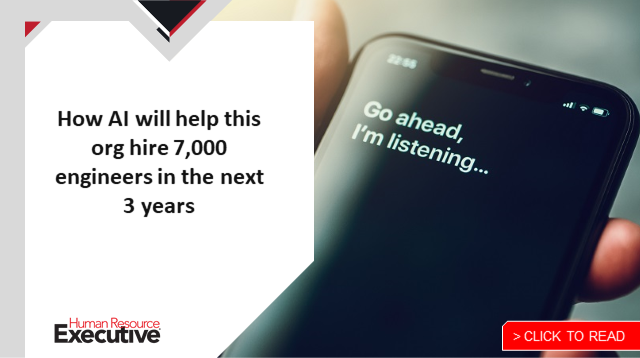The past two years have upended the way employees look at work and HR leaders need to prepare to deliver new services for the workplace of the future based on the changes that are taking place right now.
The events of 2022 will have a profound impact on how HR leaders operate in 2030, said Melanie Lougee, head of strategy, employee workforce business, for ServiceNow, in a presentation titled “Shaping Future Experiences for Your people and Workplaces in 2022” at this week’s HR Tech Virtual conference.
Lougee and Gretchen Alarcon, vice president and general manager of HR service delivery for ServiceNow, co-hosted the presentation. The free, online conference runs through Friday. Register here.
For example, current supply chain challenges could lead to an explosion in U.S. employment as employers cancel agreements with overseas technology suppliers and open factories in the United States.
In fact, it’s already happening. Clean energy car manufacturer Tesla recently made headlines when it ditched overseas auto parts suppliers to build its tools in nearby U.S. factories. Likewise, Intel has announced plans to build a $20 billion semiconductor manufacturing plant in Ohio and General Motors unveiled plans to invest $7 billion in electric vehicle plants in Michigan.
Related: Don’t miss GM’s Kyle Lagunas discussing talent acquisition during his keynote on Friday, March 4.
 This means that employers will face a tougher and tighter job market in 2030, meaning it will get harder to fill many roles and recruit talent before it gets easier, Lougee warned.
This means that employers will face a tougher and tighter job market in 2030, meaning it will get harder to fill many roles and recruit talent before it gets easier, Lougee warned.
“Today’s supply chain failures will be 2030’s hiring challenges,” she said.
Global economies, stability and legislation also will affect business and hiring in 2030. Brexit, recent protests on the Canadian border and the war in Ukraine are showing the impact of instability this year.
“This means work will go where people are available and markets are stable,” Lougee said.
Related: The future of work is speeding toward HR; Is innovation keeping up?
As nations such as Greece, Singapore, Brazil and Belgium introduce laws to protect remote work, it’s becoming even more clear that hybrid and remote work are here to stay. Ireland is considering a new law to allow workers to request remote work without being penalized by their employers, while Mexico is offering mothers the chance to work remotely while their children are young.
“This is a tremendous benefit as we talk about bringing women back to work,” said Lougee. “We will see more rights for remote workers across the globe and employers of choice will go beyond required law to attract and retain talent.”
She added that union membership also is spiking as workers organize in non-traditional industries. “If a small, upscale bakery in San Francisco has a union, your company might have one as well.”
In addition, the workplaces of 2030 will look far different from the one employees left in 2020 when the pandemic began, Lougee predicted. Workers will operate and collaborate across different locations, time zones and devices. And traditional offices will resemble event spaces as live, in-person meetings transform into special events that require such things as catering, detailed agendas and travel and accommodations for out-of-state employees.
“If I am an employee, I [will] need a good reason to show up in an office,” she said.
Related: Heard at HR Tech Virtual: ‘Just accept that hybrid work is good’
 Another factor is the change that will inevitably accompany the new generation of workers entering the workforce post-pandemic, the speakers said. These college students who spent two years taking remote learning classes to earn their degrees are different from the Millennials who shook up the workplace nearly 15 years ago. Alarcon called it “Generation Interrupted.”
Another factor is the change that will inevitably accompany the new generation of workers entering the workforce post-pandemic, the speakers said. These college students who spent two years taking remote learning classes to earn their degrees are different from the Millennials who shook up the workplace nearly 15 years ago. Alarcon called it “Generation Interrupted.”
This generation is able to quickly form strong connections in a digital world, for example, and has less stigma around mental health treatment. “They have experienced pandemic hardships and are acclimated to diverse generations because 22% of them have immigrant parents,” Alarcon said.
They also take ESG—equity, social and governance initiatives—seriously and actively search for companies’ ESG scores before applying for a job. HR leaders will have to work with IT, facilities, even finance and other departments to improve ESG scores across organizations with efforts that will create an enticing workplace.
“A high score is not a good thing; you really want to have a low score. Corporate values matter to employees more than they do to customers or investors,” said Lougee.
 Today’s workers of all generations are part of what Alarcon calls “The Great Reawakening” and they are re-evaluating their priorities and values. That means HR strategy will have to flex as resumes with gaps in work history become common, employees want new and different benefits, and workers demand skills training for career advancement, to name just a few changes on the horizon.
Today’s workers of all generations are part of what Alarcon calls “The Great Reawakening” and they are re-evaluating their priorities and values. That means HR strategy will have to flex as resumes with gaps in work history become common, employees want new and different benefits, and workers demand skills training for career advancement, to name just a few changes on the horizon.
After a stressful two years of a global pandemic and a steady stream of difficult news, employees believe that there are more important things than work, said Alarcon. “In the past few years, people have looked around and said ‘I don’t know if this is what I want to do with my life.’”
Registered attendees can view the full session here.

